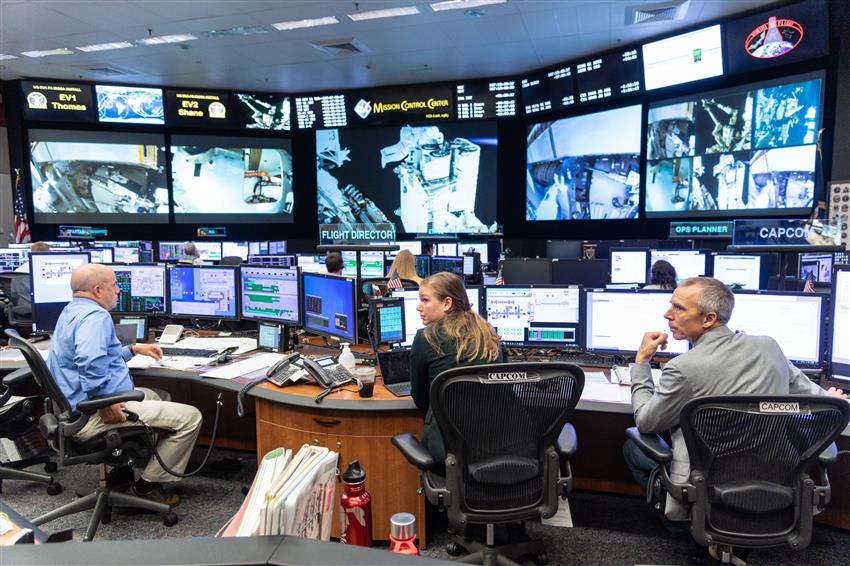Capcoms
On Earth
The term "capcom" is a shortened form of "capsule communicator."
A capcom's chief role is to bridge two worlds: that of Mission Control Center on Earth, and that of astronauts in space.
Capcoms represent both:
- the technical control team on the ground; and
- astronauts in orbit.
The term "capcom" was first used in the 1960s during the Mercury missions, which sent the first Americans into space in capsules.
As capcoms are typically astronauts themselves, they are able to put themselves in the shoes of the mission crew on the International Space Station (ISS).
To support the NASA-led Artemis program, astronauts will also get the opportunity to become lunar capcoms for future missions to the Moon. Canadian Space Agency (CSA) astronaut Jenni Gibbons is among those who are training for this new role.
Around-the-clock services
To support ISS operations, capcoms are required 24/7. A typical day consists of three eight-hour shifts.
Since there are not always enough astronauts to fill all those hours, numerous other people are trained for the role.
Crystal clear communications
Capcoms must choose their words carefully and be clear and concise for a few reasons:
- time is of the essence during space missions, especially in emergency situations;
- there is no room for error or interpretation.
In a sense, a capcom's communications are like verbal tweets, transmitting very complex information in a simple manner.
Comprehensive training for a challenging position
Becoming a capcom takes three to six months of training.
The training involves:
- carrying out simulations in a mock control room with virtual teams representing Russia and Europe;
- enacting the worst-case scenarios that capcoms may have to deal with;
- becoming familiar with the operations of real mission control centres around the world.
Hands-on learning for recruits
For astronauts who have not yet flown to space, like Jeremy Hansen, Jennifer Gibbons, and Joshua Kutryk, assuming the role of capcom is the best way to gain real mission experience.
Capcom experience proves very useful during an astronaut's first mission. When they are in space themselves, astronauts who have worked as capcoms know how decisions are made on the ground!

